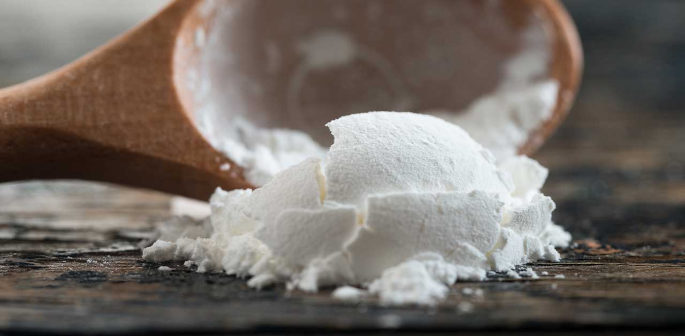"It's insane just by looking at ingredients"
Maltodextrin is in many foods that are eaten daily but it can come with health risks.
It is a white powder that is relatively tasteless and dissolves in water. It is an additive in various foods, as it can improve their flavour, texture and shelf life.
It is possible to make maltodextrin from any starchy food. This includes corn, potato, wheat and rice. Maltodextrin then undergoes processing.
To make maltodextrin, manufacturers put starch through a process called hydrolysis.
Hydrolysis uses water, enzymes and acids to break the starch into smaller pieces. This results in a white powder consisting of sugar molecules.
In food and drink, maltodextrin can help by:
- Thickening foods or liquids to help bind the ingredients together.
- Improving texture or flavour.
- Helping to preserve foods and increase their shelf life.
- Replacing sugar or fat in low-calorie, processed foods.
When it comes to food and drink, many people consume maltodextrin every day without realising.
It is typically added to baked goods, frozen foods, yoghurt and beer.
Maltodextrin is also added to soups and energy drinks.
Everyday foods include ice cream, Doritos and salad dressing.
It is so prevalent in foods that it is important to read the label. Lots of low-diet foods and keto foods even have this.
One person said:
“Maltodextrin is in freaking Taco Bell and rotisserie chicken in supermarkets.
“It’s insane just by looking at ingredients how much info you can gather from it.”
While maltodextrin is recognised as a safe food additive, it has been linked with health risks.
Diabetes
If a person eats too many foods that contain maltodextrin, their diet is likely to be high in sugar, low in fibre and full of highly processed foods.
It has a higher glycemic index (GI) than table sugar.
This means that it can cause a spike in people’s blood sugar.
A blood glucose spike can be particularly dangerous for people with diabetes.
A high GI means that the sugars in these foods will quickly enter the bloodstream, where the body will absorb them.
Affects Gut Bacteria
Research suggests that maltodextrin may affect gut bacteria, which plays an important role in people’s health.
Research was conducted on mice and it implied that people who consume maltodextrin may reduce the number of good bacteria and increase the number of harmful bacteria.
This may lead to intestine damage and a higher risk of inflammatory bowel diseases.
A study showed that maltodextrin increases the activity of Escherichia coli bacteria.
This may have a role in the development of Crohn’s disease.
Maltodextrin has also been linked to the survival of Salmonella bacteria, which may cause gastroenteritis and a broad range of chronic inflammatory conditions.
A study suggested that maltodextrin may also compromise the ability of cells to respond to bacteria.
It can also subdue intestine defence mechanisms against them, leading to intestinal problems.
Allergies
Many food additives like maltodextrin can cause allergies.
Side effects may include allergic reactions, weight gain and bloating.
Consumption of maltodextrin may also cause skin irritation, asthma, cramping, or difficulty breathing.
Gluten intolerant people should be aware that maltodextrin that is derived from wheat may still contain some gluten.
Genetically Modified Ingredients (GMO)
The World Health Organisation state that GMOs are safe to consume.
But they may be harmful to the environment or people’s health because of the increased use of herbicides and pesticides on GMO crops.
It is also possible that the genetically modified material can get into the human body through their diet.
It is believed that there is a link between GMOs and various health conditions such as cancer.
But there is little evidence that it is true, though some believe that the lack of evidence could be partly due to the censorship of GMO research.
The Environmental Sciences Europe journal published an article in support of this theory.
It is consumed to boost energy levels and performance.
It is considered to be safe for most people, but it may carry some risks, particularly for people with diabetes.
But eating too many processed foods containing additives can cause health problems.
Instead, consider eating a healthier diet of whole grains and vegetables to boost gut, brain and heart health.































































